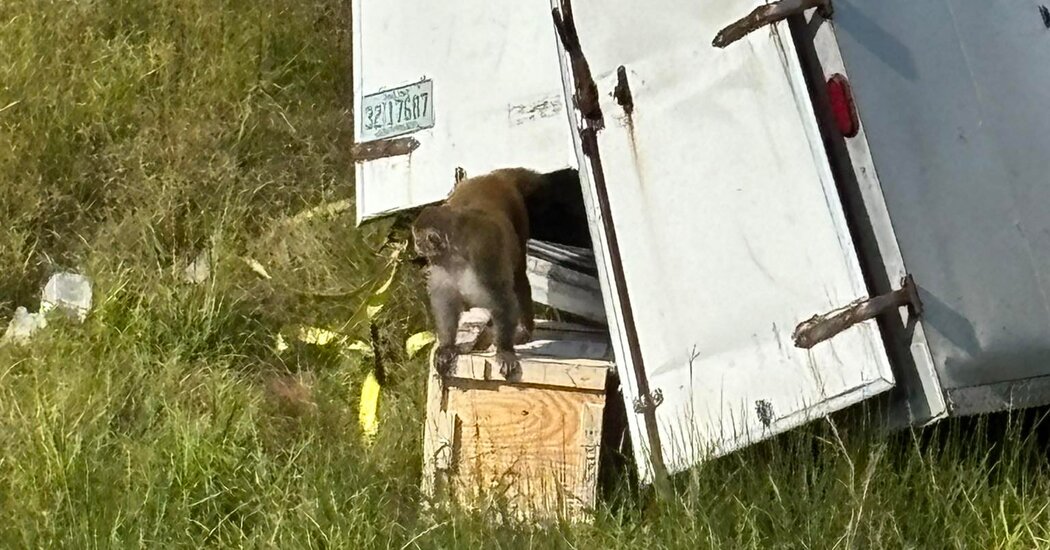Copyright The New York Times

Sheriff’s deputies euthanized five monkeys that got loose when the truck carrying them overturned on a Mississippi highway on Tuesday after the driver mistakenly told them that the primates were infected with Covid-19, hepatitis C and herpes when they were not, the authorities said. Three other monkeys that escaped were still loose as of Wednesday afternoon, Sheriff Randy Johnson of Jasper County, Miss., said in a phone interview, lamenting the sequence of events that had led to several of the monkeys being put down. The sheriff said that the five monkeys that were euthanized had been shot. “I hate it got to the point that it did,” Sheriff Johnson said. “We were told they were highly infectious, dangerous to the public. We reacted on the information that we were given at the time.” Twenty-one rhesus monkeys were aboard the truck when it overturned on Tuesday afternoon on Interstate 59, north of Heidelberg, Miss., about 85 miles southeast of Jackson, Miss., the capital, according to Sheriff Johnson, who said that the driver had fallen asleep. Photos of videos taken at the scene showed animal crates strewed in the grassy median, where some of the monkeys roamed free. In a social media post around 2:30 p.m. on Tuesday, the sheriff’s office advised the public not to approach the monkeys, which it said were being transported to another facility from a biomedical research center outside New Orleans that is part of Tulane University. The sheriff’s office warned that the monkeys were “aggressive,” writing that they posed a public health threat and required personal protective equipment to handle. “The monkeys carry hepatitis C, herpes, and COVID,” the sheriff’s office wrote. About three hours later, the sheriff’s office said that the university had told deputies that the truck driver had been misinformed. “They have not been exposed to any infectious agent,” the university said of the monkeys, who, it added, belonged to another entity that it did not name. It is unclear how the driver became misinformed. The university said it was not transporting the monkeys. It declined to name the other entity or say where the monkeys were being taken at the time of the crash. “Nonhuman primates at the Tulane National Biomedical Research Center are provided to other research organizations to advance scientific discovery,” the university said. Animal welfare groups, including People for the Ethical Treatment of Animals, criticized the handling of the monkeys and the response to their inadvertent release. “PETA calls on authorities to demand full necropsies and veterinary records for the monkeys killed in the crash in Mississippi and to make the results public, so communities for once will know the truth about the risks of sending terrified animals to crisscross U.S. highways in secret shipments,” said Lisa Jones-Engel, a senior science adviser for primate campaigns with PETA. Rhesus monkeys have a life span of about 25 to 30 years but can live up to 40 years in captivity, according to the Wisconsin National Primate Research Center. Known for their reddish-pink faces, they are the most-studied nonhuman primate, both in the field and in laboratory settings, the center said.



